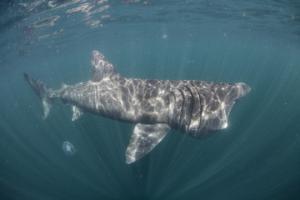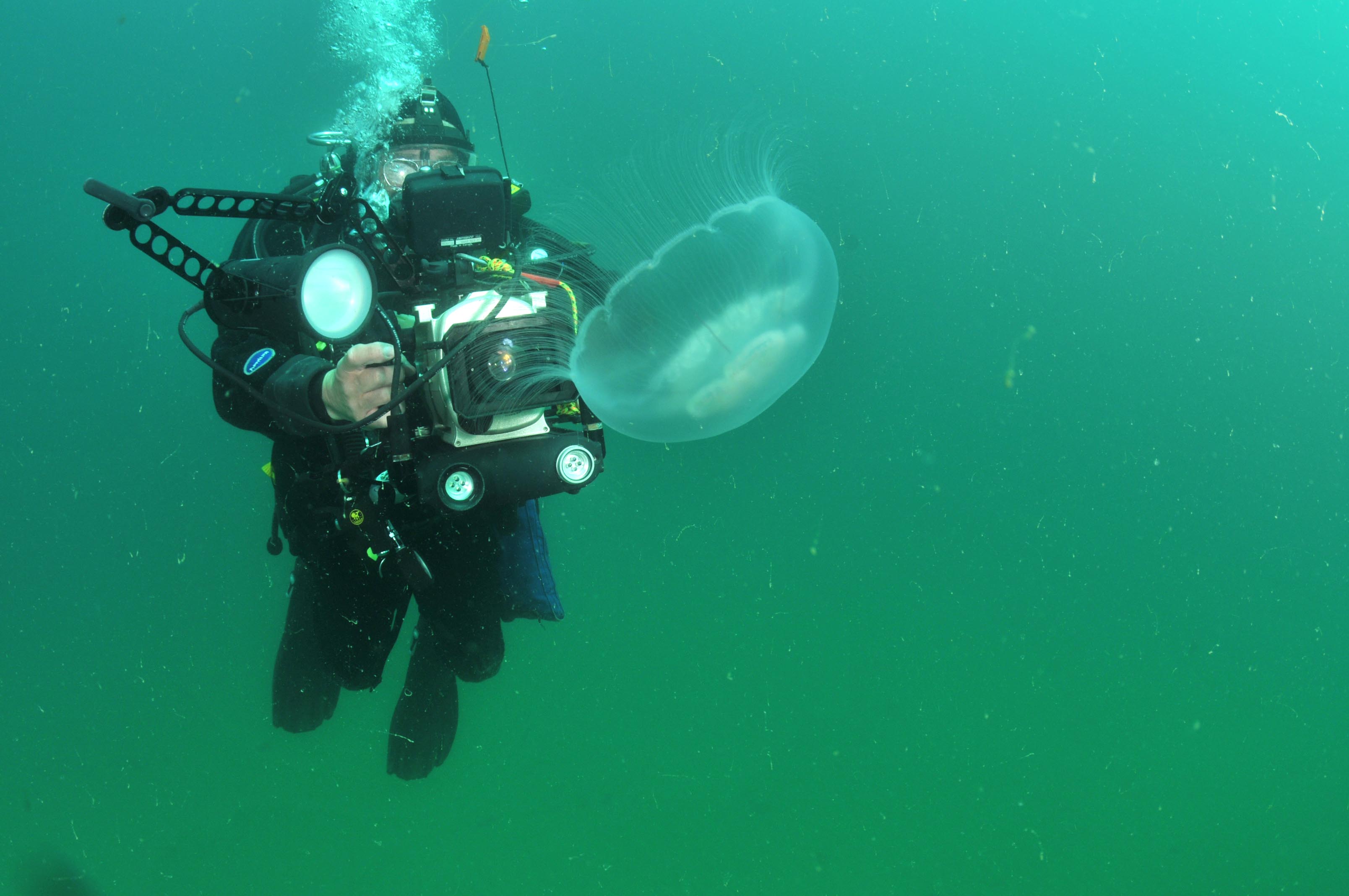The basking shark is the largest shark in UK waters and the second largest fish in the world, with adults typically reaching 7.9m in length. These filter feeding sharks may be seen individually, in small groups, or in large schools. They are frequently observed in coastal waters during summer and autumn months but less commonly strand on the shore; as they cannot breathe on land they will most likely be dead if found stranded.

Of the seven marine turtle species, five have been recorded in the UK. Leatherback turtles migrate to the UK to feed on jellyfish while the other four species (loggerhead, Kemp’s ridley, green and hawksbill turtles) usually occur as stray juveniles carried by currents from warmer seas.

What to do if you come across other live stranded marine animals
- Contact the British Divers Marine Life Rescue (BDMLR) on 01825765546.
- Alternately contact Environmental Crime.
- Do not put the animal back into the sea without advice from BDMLR or a vet.
- Basking shark – if the animal is alive place wet seaweed or clothing over it and pour water over its head (gills) to keep it wet and oxygenated.
- Leatherback turtle – if apparently uninjured this can be carefully dragged back to sea. Enlist the help of others to pull the shell (do not pull the flippers). Do not drag the animal over rocks.
- Hard-shelled turtles (Loggerhead, Kemp’s ridley, green and hawksbill) – should not be returned to the sea. Wrap the animal in wet clothing or seaweed keeping the nostrils clear. If the animal is inactive raise the back end of the shell so it is resting at approximately 30° to drain the lungs. The only feasible option for the recovery of hard shelled turtles is to arrange transport to Exploris for rehabilitation and possible repatriation.
Response to Dead Stranded Animals located on Northern Ireland shoes
If you come across a dead marine animal (whale, dolphin, porpoise, seal, shark or marine turtle) located on Northern Ireland shores contact the DAERA Marine Wildlife Team so we can record this for scientific purposes. Please provide information on location, species, size, condition and any photographs if possible. Removal of the carcass is at the discretion of the landowner or land manager.
Please note the DAERA Marine Wildlife Team are unable to respond to out of hours calls.
